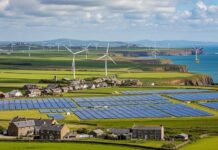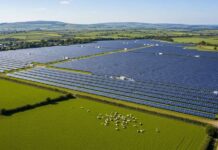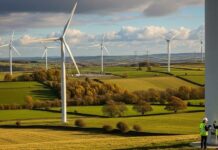Ministers have made insignificant progress when it comes to enhancing UK homes’ energy efficiency, even as the Russian invasion of Ukraine has meant that there is a need to cut dependency on gas when it comes to home heating, as per the National Infrastructure Commission.
As per the annual report from the Independent Infrastructure Tsars, the progress of improving infrastructure in the UK stuttered in 2022, despite the fact that there was increased investment to meet the economic and climate goals.
The report took a dig at the government’s record on the sluggish take-up of electric heat pumps so as to help cut emissions by way of home heating, even as the UK’s reliance on gas has already cost the economy billions because of Europe’s energy crisis.
The chair of NIC, Sir John Armitt, said that there was a substantial gap between long-term ambition and present performance, which indeed required a gear change when it comes to infrastructure policy. He added that all this means making smaller, low-stakes incremental changes instead of placing bigger strategic bets that are backed by public funding wherever required. The fact is that the risk of delay, as far as addressing climate change is concerned, happens to be greater than that of overcorrection.
Despite the government’s goal for a minimum of 600,000 heat pumps that need to be installed each year until 2028, only 55,000 got fitted in 2021. On the other hand, 1.5 million gas boilers were installed. The NIC has gone on to blame insufficient government funding as well as the absence of key policies for the lack of growth. It has urged the government to come up with a concrete plan.
Apparently, the UK remains too reliant when it comes to natural gas, which happens to be a high-carbon, high-cost, as well as insecure source of energy, as per the NIC.
The report further stated that, last year, the increase in gas prices that was pushed by Russia’s invasion of Ukraine meant a rising energy cost and also jeopardised the security of the supply. The government is now planning to subsidise the energy consumption of businesses as well as households and set prices at £2500 in a year between October 2022 and June 2023.
It is well to be noted that the government’s efforts to decarbonize the transport sector have also stalled, as per the report. The ministers anticipated that 300,000 public electric vehicle charge points would be in place by 2030, but till now only 37,000 have been installed. The report also took into consideration the positive growth when it comes to the government’s rollout of gigabit broadband as well as the UK’s rising electricity generation based on renewables.
The report went on to praise the push when it comes to implementing more devolution and also developing plans to enhance water supply. That said, according to Armitt, in other areas, the government isn’t delivering fast enough. The NIC report comes as ministers are all set to present an energy security day.

































